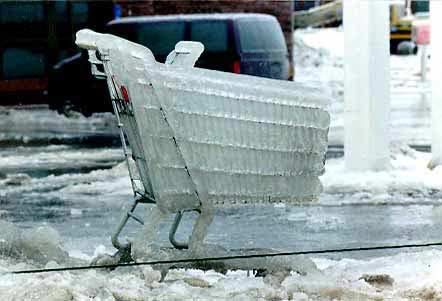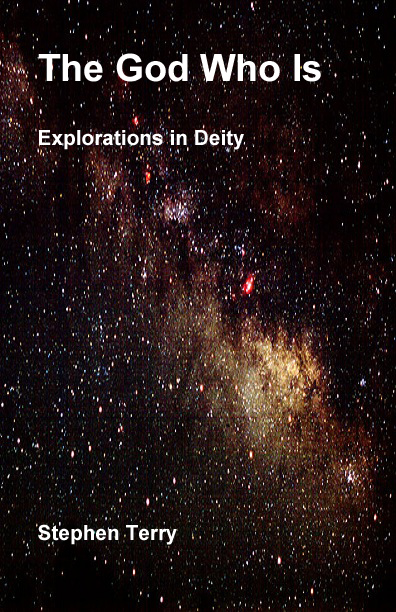Rebuke
and Retribution
Stephen
Terry
Commentary
for the October 24, 2015 Sabbath School Lesson
 “Judah
mourns, her cities languish; they wail for the land, and a cry goes up from
Jerusalem. The nobles send their servants for water; they go to the cisterns
but find no water. They return with their jars unfilled; dismayed and
despairing, they cover their heads. The ground is cracked because there is no
rain in the land; the farmers are dismayed and cover their heads. Even the doe
in the field deserts her newborn fawn because there is no grass. Wild donkeys
stand on the barren heights and pant like jackals; their eyes fail for lack of food.” Jeremiah 14:2-6, NIV
“Judah
mourns, her cities languish; they wail for the land, and a cry goes up from
Jerusalem. The nobles send their servants for water; they go to the cisterns
but find no water. They return with their jars unfilled; dismayed and
despairing, they cover their heads. The ground is cracked because there is no
rain in the land; the farmers are dismayed and cover their heads. Even the doe
in the field deserts her newborn fawn because there is no grass. Wild donkeys
stand on the barren heights and pant like jackals; their eyes fail for lack of food.” Jeremiah 14:2-6, NIV
During the month of November, 1996, Spokane County,
where I live, was struck by a major ice storm. Much of an area with around a
third of a million people living was without power. This meant no heat in
bitter winter cold for many. It meant also no warm food and no hot water. For
those living in warmer climes that have never seen snow or ice, this may be
hard to fathom. But when this happens in the higher latitudes, life can be
hanging by a thread for many. Cellphones were not in common usage, although
charging them would have been problematic even if we did have them.
Fortunately, the power for the “landline” phone system was independent and for
most people their phones continued to work.
We phoned the power company to inform them that our
power was out, but the problem was so widespread that even getting through to
someone was a challenge. Once we did get through, we were advised that we would
be on a list for repair but that emergency systems were primary so they would
be dealt with first. The estimated time for a repair they said would be around
eight hours, so we bundled up and we waited. When the repair crew arrived, they
said an underground fuse had blown and they would replace it. When that was
done, we rejoiced to feel warm air from the furnace and lights in our home.
However, no sooner did the power truck head down the highway than the power
immediately went off again. Our elation turned to despair.
I quickly called the power company and after a lengthy time
on hold, was told that we would be put in the que for repair again. They were
not sure how long it would be, but perhaps a few hours. This was disheartening.
Perhaps even more depressing was that this was Thanksgiving week, and we had
relatives coming to enjoy the holiday with us. They decided to come anyway,
hoping that the power would be restored by then. It wasn’t. We ended up going
to a buffet restaurant in town that still had power for our Thanksgiving
dinner. When we drove through town we discovered that most stores, including
grocery stores, were dark and empty.
For the grocers, they could sell nothing because they
had no electricity to operate their cash registers and the computer network
that linked them to inventory was not operating. Also, much of the refrigerated
and frozen food was ruined because it could not be kept cold enough without
electricity. That may seem strange in view of how cold it was outside, but many
things require zero degrees for storage and it was perhaps twenty degrees
warmer than that at night with slightly above freezing temperatures during the
day. This caused the ice from the ice storm to melt in the daytime, but left
all the damage it had caused: downed trees, snapped power poles and lines, and
damaged structures. In some areas, the appearance was more like a war zone.
Once power was restored, the local news revealed that some individuals had
taken guns and actually shot at repair crews for not getting to them fast
enough. All of this demonstrated how thin the veneer of civilization is that we
take for granted every day.
This raises the question of how much would we endure
before resorting to primitive selfishness and destructive behavior? Could we
faithfully observe the Golden Rule[i] if we were facing a breakdown
in our normally expected services? Perhaps more importantly would we learn
anything from the experience that would help us grow spiritually?
In Jeremiah’s day, the connection was often drawn
between events in the natural world and the relationship that people had to
their god. This was true of both Jewish and pagan societies. This was the
subject not only of Bible stories, but also of the myths of many cultures,
including Greek and Roman. Often was recounted the fate of humans, demi-gods
and even lesser gods who transgressed the will of those in the panoply of
ruling deities. Interestingly, pagans often took this very seriously and
morality plays would re-enact the lessons to be learned from the stories. But
the Jews strangely rebelled against their spiritual heritage and often chose
their own path in contradiction of what would be expected even in pagan societies.
This perplexed Jeremiah who remarked that no nation gives up its gods but Israel
had done exactly that, exchanging the living God for idols of stone, metal and
wood.[ii] Further, uncharacteristically
for people of that time, they failed to see a connection between their experiences
in the natural world and their relationship to deity.
Today, we also struggle with the idea that the two may
have any connection. This makes it challenging to relate to books like
Jeremiah. For instance we know that rain and snow do not come from some secret
storehouses[iii] somewhere but happen as
a result of certain climatic conditions, hence the weather reports on the
evening news. While not an exact science, the forecasts are usually pretty
close to on target. We know that earthquakes come randomly from the sliding of
geologic plates against one another. Droughts also are related to weather
patterns out over the major oceans and poor farming and harvesting practices.
So where does this place us in respect to understanding Jeremiah, the other
prophets, and even the Book of Revelation which ties these recurring natural
events to God’s disposition toward His followers?
Perhaps the relationship between faith and natural
phenomena is not as ambiguous as we might think. We hear often in the media
about how greenhouse gasses are depleting the ozone layer. Plastics are
entering the waste stream with extraordinary volume, choking our oceans and
killing wildlife. Hundreds of chemicals now pollute the water we drink and the
air we breathe. While the government of the United States has determined
acceptable levels for many of these contaminants individually, no one has determined
if in combination these chemicals may have a cumulative toxic effect.
Electromagnetic radiation bathes us everywhere we go from a multitude of
sources. All of these things have happened because prior to marketing, little
consideration is given to the question of what will be the long term effects of
this technology on our environment and upon us. How will any deleterious effects
from one source combine with those from another? Will it produce something
inert, or should we be concerned?
When we say that the side effects of a technology are
negligible, aren’t we actually saying “You are going to have to live with this because
we have determined that the benefit provided outweighs the risk posed to you or
anyone else?” At what point did we all lose the ability to say, “I do not want
chemical X in my drinking water. Please stop putting it there.” All of this is
strikingly similar to the tale of Naboth’s vineyard which was coveted by King Ahab.[iv]
Ahab wanted to purchase Naboth’s vineyard because it was
adjacent to the palace. Naboth did not want to sell the property, so with Ahab’s
acquiescence, his wife, Jezebel, had Naboth killed. King Ahab then took possession
of the vineyard. The parallel here is
that someone is saying I want something and if you have to die so I can satisfy
my desire, so be it. Multiplied by millions of Ahabs who want something and
Jezebels willing to supply it, we begin to see the global nature of the
problem. We also begin to see how failed relationships with deity multiplied to
such an extent can create worldwide ecological disasters impacting weather and
the very air we breathe and water we drink.
The dramatic imagery of Revelation with seas of blood
and out of control weather scorching mankind or destroying him with hail may
not seem so far-fetched when we consider what we have done to our Earth. But
all of this could have been prevented and may still be mitigated if we would
only admit our selfishness and work for the benefit of all and not just a few. That
Golden Rule could serve us well if we choose to live by it. Perhaps the Prophet
Micah summed it up best. He wrote. “He has shown you, O mortal, what is good.
And what does the Lord require of you? To act justly and to love mercy and to
walk humbly with your God.”( Micah 6:8, NIV) If we all set aside self, long enough to do that,
what a different world this would be.
